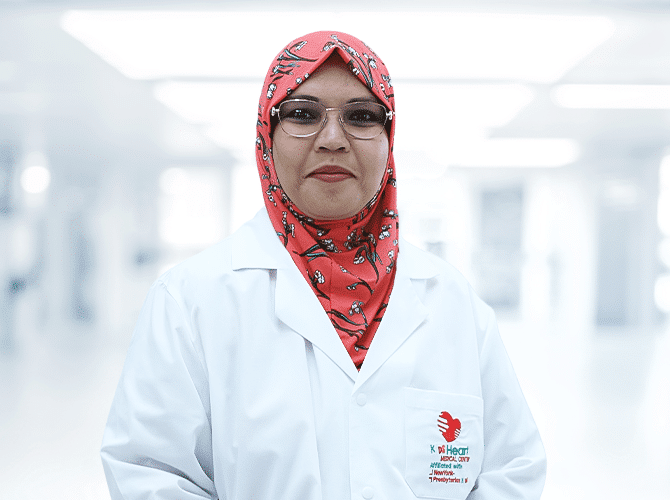Management of Fetal Growth Restriction
Management of Fetal Growth Restriction
Supporting Pregnancies Where the Baby’s Growth Is Slower Than Expected

At KidsHeart Medical Center, we understand how worrying it can be to hear that your baby isn’t growing as expected.
Fetal Growth Restriction (FGR), also known as intrauterine growth restriction (IUGR), is a condition where the baby measures smaller than normal for gestational age.
In Dubai and Abu Dhabi, our maternal-fetal team provides close monitoring, expert imaging, and personalized care to support both mother and baby through this high-risk scenario. Explore our gynecology services here.
With timely detection and ongoing support, many babies with FGR can still be safely delivered and thrive.

What Is Fetal Growth Restriction?
FGR means the baby is not growing at the expected rate inside the womb. It may be due to problems with the placenta, maternal health conditions, or fetal issues.
There are two main types:
- Symmetric FGR: Baby is proportionally small — often due to early issues.
- Asymmetric FGR: Head is a normal size, but body is smaller — typically related to placental function.
FGR is typically diagnosed through ultrasound measurements and confirmed through serial growth scans.
When to Seek Help
You may be referred for FGR management if:
- Your baby measures below the 10th percentile for gestational age
- There are signs of reduced amniotic fluid or abnormal blood flow
- You have high blood pressure, diabetes, or autoimmune conditions
- Your placenta is not functioning normally
- There’s a history of FGR or stillbirth in previous pregnancies
Timely and skilled care can make a big difference in outcomes.
What to Expect at KidsHeart
- Ultrasound Evaluation: We assess baby’s size, growth curve, and placental blood flow (Doppler studies).
- Frequent Monitoring: Depending on severity, growth scans and fetal well-being tests may be scheduled weekly or biweekly.
- Maternal Health Review: We manage any underlying conditions that may impact growth.
- Fetal Surveillance: Non-stress tests and biophysical profiles are used to track baby’s movements and oxygen levels.
- Delivery Planning: Timing and mode of delivery are based on growth trends, Doppler findings, and baby’s overall condition.
At KidsHeart, decisions are never rushed — but made carefully with your baby’s best chance in mind.
Why Choose KidsHeart?
- High-resolution ultrasound and fetal Doppler assessments
- Maternal-fetal medicine specialists experienced in high-risk care
- Ongoing monitoring and delivery planning tailored to your case
- Support for maternal anxiety and reassurance throughout the process
- Services available in both Dubai and Abu Dhabi
We care for every gram of growth — and every question you have along the way.

Care for Every Day Baby Grows
At KidsHeart Abu Dhabi and Dubai, we guide families through pregnancies affected by fetal growth restriction — with detailed monitoring, personalized decisions, and unwavering support.
Frequently Asked Questions (FAQs)
Not always. Many small babies are perfectly healthy — but they do need closer observation.
Usually every 1–2 weeks, depending on how your baby is growing and the Doppler results.
Sometimes. If growth stops or blood flow worsens, early delivery may be safest — often after 34–37 weeks.
It can be related to hypertension, clotting issues, or unknown factors. We monitor and support placental function as best we can.
Many do. We work closely with pediatricians to ensure follow-up care and growth monitoring after delivery.




